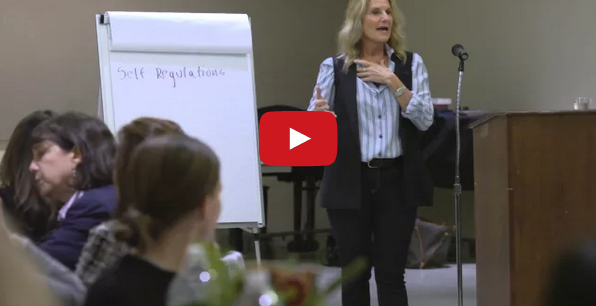
- This event has passed.
School Relations Luncheon
October 23, 2014 @ 12:00 pm - 2:00 pm
 “Parenting with an Open Heart” by Meg Sheridan
“Parenting with an Open Heart” by Meg Sheridan
“When you pictured having a family, what did that look like? Who was your child going to be to you, and for you?” So began the interactive presentation by Andrea Spiritos, a psychotherapist specializing in young adulthood and parenting. Her workshop, “Parenting with an Open Heart” on October 23rd, was attended by PIA school reps, facilitators and their guests. The workshop focused on the ways parents can communicate openly and honestly with their children, listen without judgment and allow their children to develop into adults who are comfortable in their own skin.
Spiritos began the workshop by asking the audience to reflect on their own childhoods. After asking a few softball questions she cut to the chase: “growing up, if you could have changed anything in your family, what would that have been? What relationships would change? What messages would have been helpful to hear?” When a few brave souls shared moments of their upbringing the point of the exercise became clear: by identifying and acknowledging our flaws and vulnerabilities, we can become more sensitive to others, including our children.
We sometimes deny the fact that how we were raised influences how we raise our children. Instead, we project our fantasies on to our children– the childhood we wished we had, but didn’t — and these fantasies can become our children’s burdens. For example, children both notice and internalize when a parent is sad, or unhappy with their physical appearance. We can better connect with our children if we recognize that as parents, we’re still on our own journey of growth, reconciling our imperfect youth with our still-evolving adulthood. If we’re aware of ourselves as unique and flawed individuals, we can be honest and accepting of our children. Children want to be loved for their lesser traits, not just their accomplishments.
Ms. Spiritos advised parents to be more interested in what their child brings to them, rather than be a teach-and-tell parent. Ideally the parent-child relationship is a mutually evolving partnership, not an authoritative, top-down relationship.
Moving from the abstract to the practical, Ms. Spiritos reminded the audience that what children want most is their parents’ focus. Children want us to validate and appreciate their points of view, they want us to ask questions and genuinely listen to their answers. She advises parents to demonstrate patience, show forgiveness, be physically demonstrative and above all, apologize. “Don’t be afraid to say you’re sorry and ask for a do-over,” she said.
And when your teenager shuts the door in your face? Stand on the other side of it and keep talking. Let her know you are there. Responses can range from “Let me know if there is anything I can do” to “my job is to keep you safe, and you’re not acting safe.” Remember, you are still the most influential person in your child’s life, even if everything he says or does demonstrates otherwise.
For a real game-changer, said Spiritos, ask your child, “If you could change anything about me, what would that be?” Your kids know your flaws, so their answers might not surprise you, but be brave when you hear them. In response you can say, “that’s hard to hear” or “I’m going to try (to change) and when I do, please point it out.” Your child will see you as both willing to change and willing to struggle. “I assure you, she will love you more for it,” said Spiritos.
The goal of Spiritos’ workshop was for each parent to take home a nugget of personal truth. To this end, she gave the audience an exercise that can also be tried at home. “What is the job of a parent?” Spiritos asked. “What kind of person do we as parents want to raise our child to be in adulthood?” The answers included: a child who’s resilient, self-disciplined, and competent; a child who’s able to speak up for himself, and who can “work and play well with others;” a child who’s able to be alone, and who can self-regulate, without turning to drugs or alcohol; a child who can give and receive love.

Spiritos then asked how these qualities could be cultivated. Through “thoughtful communication,” a member of the audience offered. Others suggested patience, forgiveness, being a good role model by avoiding risk-taking behaviors, and asking children for their opinions and respecting them. Spiritos reminded the listeners that every list would be different depending on upbringing, family structure and dynamics. She explained that by taking the time to cultivate a list, we can help our kids find their way, and with a value system we embrace. As parents our job is to make peace with every aspect of ourselves; the ones we are uncomfortable with as well as the aspects we like. If we can acknowledge our existence as a whole person, however flawed, our children will be free to forgive their own flaws and discover themselves. They will embrace their strengths, accept their weaknesses and find their voices.
And when you know and like who you are, you’re better able to select a partner who will sustain you, help you meet challenges, give love, and fully participate in life.
Andrea Spiritos, LCSW, is a Psychotherapist and Workshop Leader specializing in adolescence, young adulthood, and parenting. She was educated and trained at NYU School of Social Work, Ackerman Institute for the Family. Andrea has been in private practice for over 25 years, treating individuals 13 and up.
